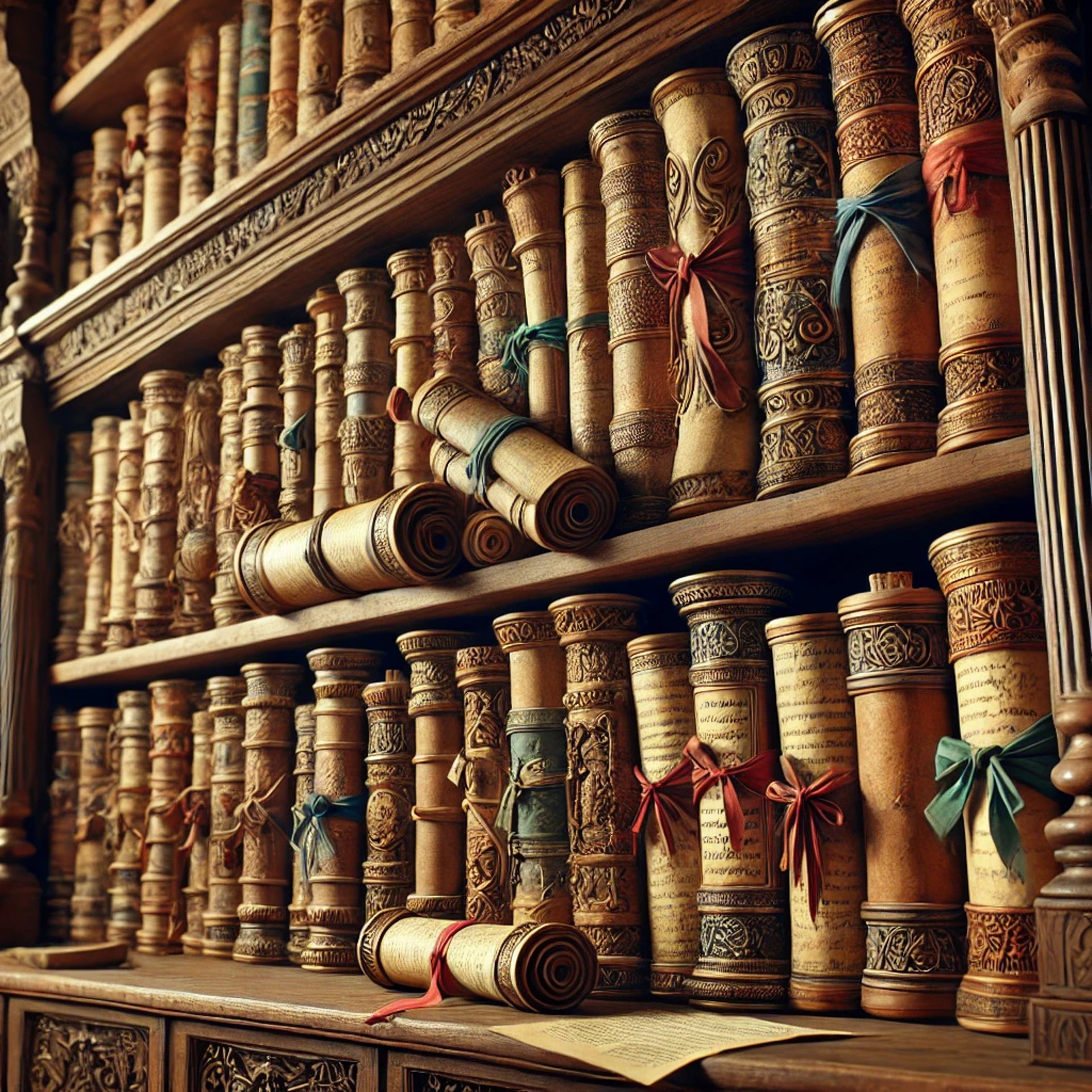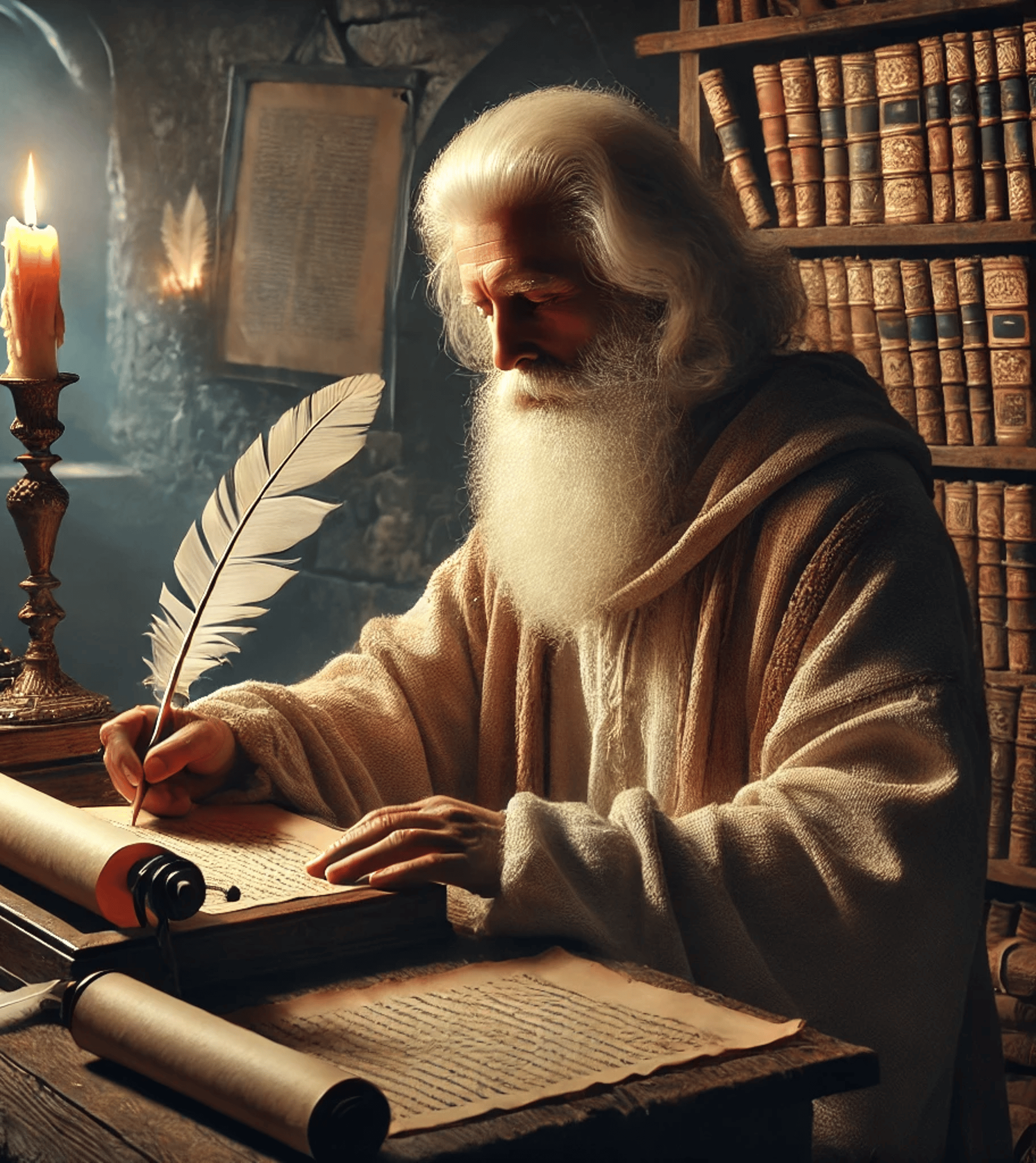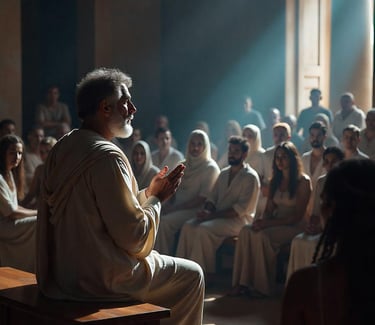
Library of Alexandria: From the Height of History to the Twilight of History
The Library of Alexandria, one of the greatest centers of knowledge in antiquity, was much more than just a collection of books. Come with me, as we embark on this fantastic journey to the grand temple of ancient knowledge.
R Cardoso

In the heart of the ancient world, where the sun kissed the sands of Egypt, there was a city of wonders, a beacon of knowledge that shone brightly in the darkness of ignorance. This was Alexandria, and its greatest glory was its library, a treasury of wisdom that contained the thoughts and discoveries of the greatest minds of antiquity.
Imagine a grand building with imposing columns and labyrinthine corridors, filled with scrolls and books that contained the secrets of the universe. Philosophers, scientists, and poets from faraway lands came to Alexandria to study and share their ideas, creating a cauldron of knowledge that would fuel the flame of civilization for centuries.
Library
of Alexandria

The Library of Alexandria was founded in the 3rd century BC by King Ptolemy I Soter, who wanted to create a center of learning and culture in his new capital. The library quickly became one of the world’s greatest repositories of knowledge, with a collection of over 500,000 volumes.
The library was a center of research and study for scholars in all fields, including philosophy, mathematics, astronomy, and medicine. Many of the great thinkers of antiquity, such as Euclid, Aristotle, and Ptolemy, worked at the library.
The History of the Library
But the Library of Alexandria was not just a repository of books. It was a meeting place, a center of intellectual exchange where the greatest minds of the age came together to debate, discuss, and push the boundaries of human knowledge. It was a place where curiosity was encouraged, where questions were valued, and where the search for truth was a never-ending adventure.


However, like all great stories, the Library of Alexandria also had a tragic end. Over the centuries, the library was targeted by wars, fires and looting, and its vast storehouse of knowledge was lost forever. What was once a beacon of light became a ghost, a symbol of all that was lost and of what could have been.

In recent years, there has been growing interest in rebuilding the Library of Alexandria. In 2002, a new library was opened on the site where the ancient library is believed to have stood. The new Library of Alexandria seeks to reclaim the role as a center of knowledge and culture that the ancient library once played.
Despite its destruction, the Library of Alexandria left a lasting legacy. Its scholars made significant contributions to philosophy, mathematics, astronomy, and medicine. The library also played a key role in preserving classical texts and translating works from other cultures.
The extent of the collection: It is believed that the library housed millions of papyri, but the exact number is unknown.
The Organization of Knowledge: How did the ancient Egyptians organize and categorize knowledge?
The fate of the books: What happened to the books after the destruction of the library? Some may have been saved or hidden.
Persistent Mysteries
To this day, many mysteries surround the Library of Alexandria:


The Legacy of Alexandria
Centuries that History Rescued

Today, the ruins of the Library of Alexandria still echo with the whispers of the wise men who studied there, and its story continues to inspire and remind us of the importance of knowledge and the pursuit of truth. While the physical library may be gone, its legacy lives on in our hearts and minds, and its flame continues to burn brightly with each new discovery, each new idea, and each new book that is written.
The Library of Alexandria may be lost, but its story continues to teach us that knowledge is a treasure to be cherished and protected, and that the search for truth is a journey that should never end.

HUMANAUTAS
Science, Technology, Curiosities and Behavior.
Contact
humanautaspontocom@gmail.com
© 2024. All rights reserved.
